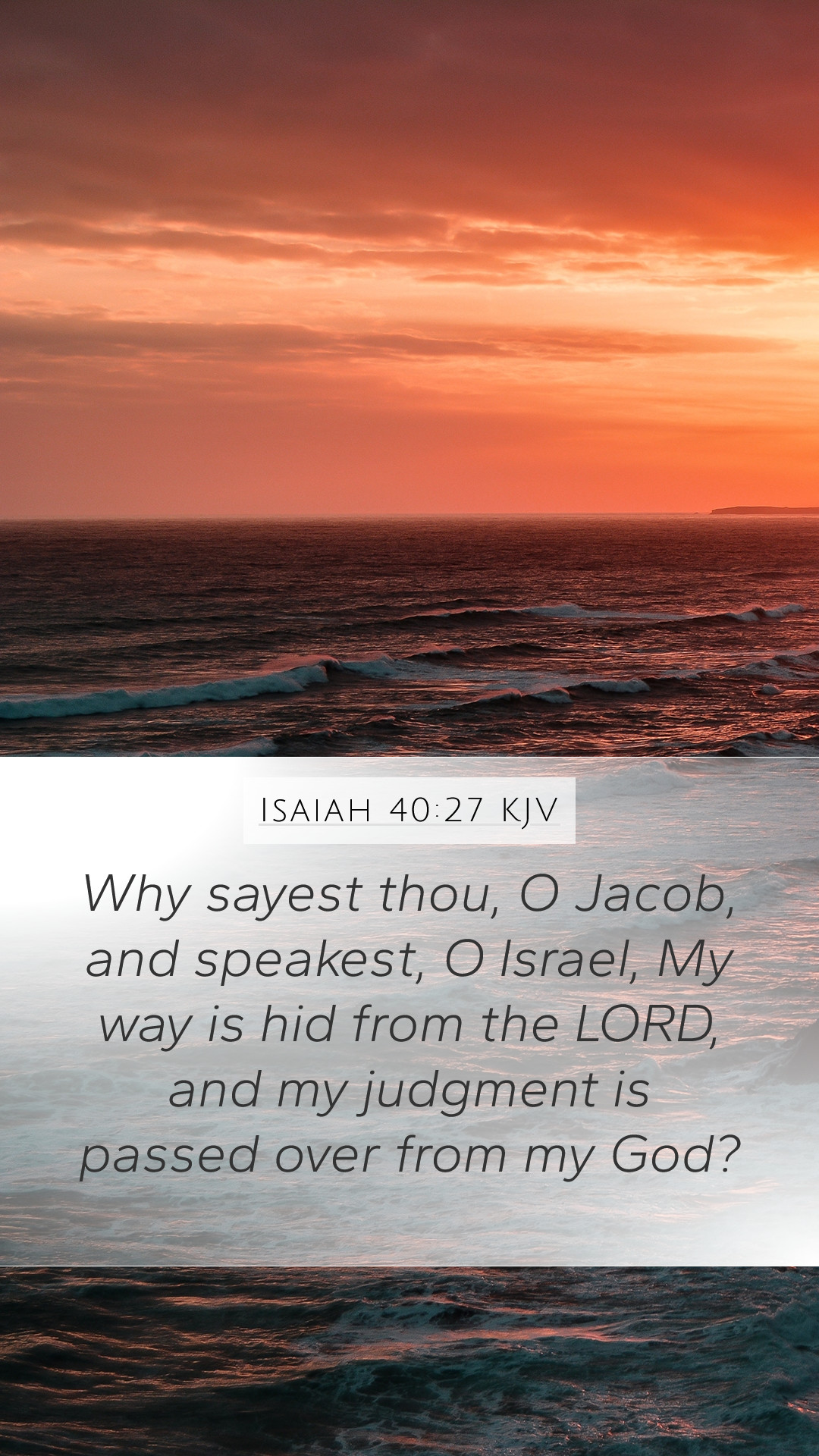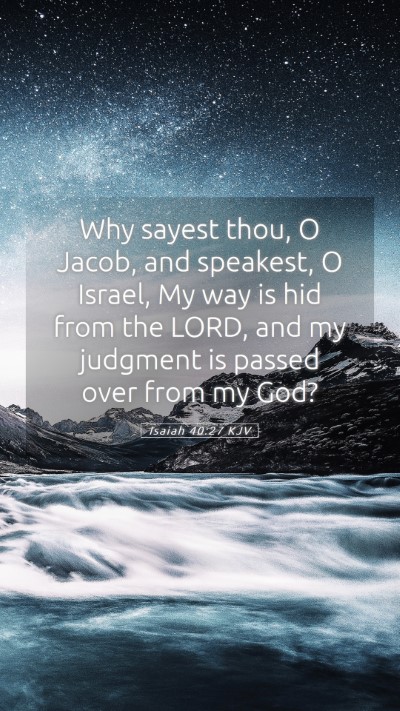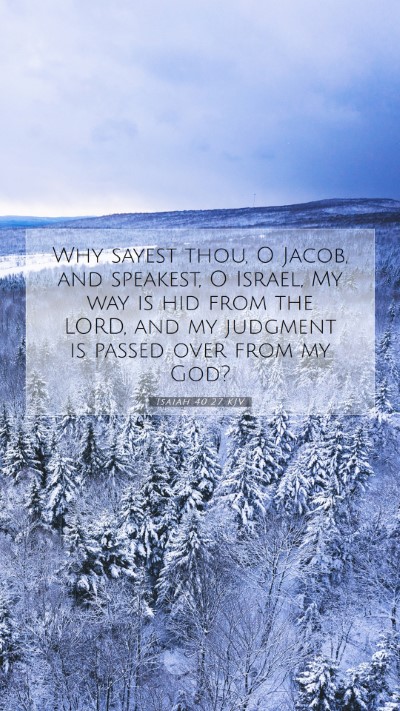Understanding Isaiah 40:27
Isaiah 40:27 states:
"Why sayest thou, O Jacob, and speakest, O Israel, My way is hid from the LORD, and my judgment is passed over from my God?"
Bible Verse Meanings
This verse addresses the feelings of despair and abandonment experienced by the Israelites during their oppression and challenges. They question God's attentiveness and justice, reflecting a common human struggle to perceive divine presence amidst suffering.
Bible Verse Interpretations
Several public domain commentaries provide insights into this verse:
- Matthew Henry: He emphasizes that the Israelites express a sense of invisibility to God, suggesting that they feel overlooked in their plight. Henry points out that this statement reflects a lack of faith in God's omniscience and divine plan.
- Albert Barnes: Barnes notes that this verse showcases a critical moment where faith wavers, and believers feel their prayers are unheard. He highlights the importance of understanding God's ways, even when they seem hidden from us.
- Adam Clarke: Clarke elaborates on the notion that God's people often forget that their circumstances do not define God's presence nor His attentiveness to their suffering. He stresses that God's judgment is always just, even when it appears delayed.
Bible Verse Understanding
Isaiah encourages the Israelites to recognize that even when they perceive their situation as hopeless, God is always aware of their struggles. The section serves both as a reminder and a rebuke, urging the faithful to maintain trust in God’s unfailing attention and justice.
Scripture Analysis
In Isaiah 40:27, the prophet captures the essence of despair felt by the people. The rhetorical questions posed illustrate a deep-seated frustration and call for introspection regarding their faith. This passage resonates with the broader theme of comfort found in Isaiah, promising restoration and a display of God's power.
Bible Verse Commentary
Commentators often reference this verse when discussing the challenge of faith in adversity. It teaches that isolation and despair are common human feelings but highlights the eternal truth that God is always cognizant of His people's needs.
In-Depth Biblical Exegesis
Engaging with this text offers a rich opportunity for study, particularly in understanding how historical context shapes interpretation. The Babylonian exile faced by the Israelites explains their sentiments as they wrestled with their beliefs during a time of national trauma.
Application of Isaiah 40:27 to Daily Life
For modern readers, this verse serves as a poignant reminder that feelings of abandonment are not uncommon, especially in times of distress. It encourages personal reflection on the nature of faith and perseverance in the belief of a compassionate God.
Additional Bible Cross References
- Psalms 10:1: "Why, O Lord, do you stand far off? Why do you hide yourself in times of trouble?"
- Psalms 22:1: "My God, my God, why have you forsaken me?"
- Romans 8:38-39: "For I am persuaded, that neither death, nor life, nor angels, nor principalities, nor powers, nor things present, nor things to come, nor height, nor depth, nor any other creature, shall be able to separate us from the love of God."
Bible Study Insights
When discussing this verse in Bible study groups, it can be useful to consider collective feelings of doubt and how they relate to God's promises. Integrating personal experiences regarding faith can facilitate a supportive environment for discussing these challenges.
Conclusion
Isaiah 40:27 ultimately encourages believers to reaffirm their faith in God’s omniscience and justice, helping navigate through personal and communal crises, thereby enriching their understanding of Scripture and deepening their spiritual journey.
In exploring this verse and its commentary, participants gain valuable insights for Bible study, enhancing their understanding of biblical texts and facilitating personal growth in faith.


